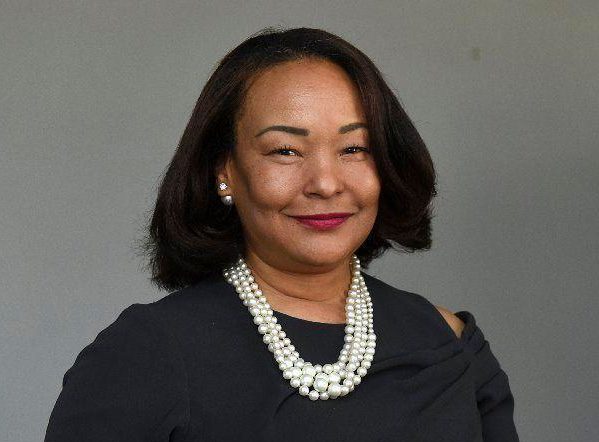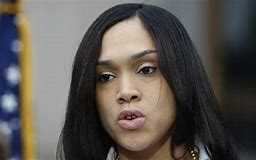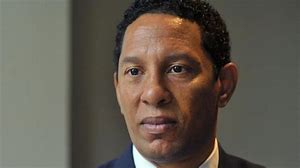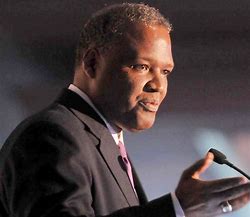“Democracy is two wolves and a lamb voting on what to have for lunch. Liberty is a well-armed lamb contesting the vote.” – Benjamin Franklin, 1959
The Maryland primary election season is fully upon us, with early voting already underway in the state of Maryland. Political races are often confusing to the public, part of the reason voting turnout is so low. We hear and see so many contradictory messages from candidates for office, and those currently in elective office seem destined to become embroiled in one scandal or another (with a few notable exceptions), resulting in a level of cynicism that has inspired many citizens, young and old, to simply swear off the electoral process altogether.
We are thankful to research efforts like those of the organization Leaders of a Beautiful Struggle (LBS), who recently published their 2018 Maryland Legislative Report Card (see accompanying post on this Web site) to grade and assess the effectiveness of the current crop of Maryland State Delegates and Senators, concentrating on those legislators from districts with large Afrikan or Afrikan-Descendant populations. Their efforts and those of other local activists, publishers, broadcasters and commentators like the National Black Unity News, the Black Think Tank, BMoreNews.com‘s Doni Glover, and David Johnson Sr. do much to help inform the community and counter the confusion and resulting apathy that often allow feckless and mendacious public officials to maintain their illicit grip on power. But even with these stalwarts sounding one alarm after another, the political landscape often remains unnecessarily clouded by disinformation and innuendo, usually from the candidates themselves.
Since this particular post is more or less off the top of my head, I won’t present much in the way of researched material here. But there are two examples of political primary races in the state of Maryland that spring immediately to mind that seem to exemplify the circumstances that have had a chilling effect on the will of the people to accept, or even believe in, the leadership and integrity of elected officials and would-be candidates. We’ve also made a brief comment below on the Maryland Senate primary in the 41st District.
Update: Who is the “People’s Champion”?
If you talk to most of the Baltimore area’s community activists, there is one candidate in this Democratic primary who has been a truly consistent presence at grassroots meetings and a regular supporter of what many would call the “people’s agenda”. That candidate is Jill Carter (pictured, below), daughter of legendary Maryland civil rights  leader Walter P. Carter and the current front-runner for the Maryland Senate in the 41st District. She is looked to by some to bring a measure of sanity and commitment to grassroots community issues, particularly those that impact the Afrikan and Afrikan-Descendant community, to the Maryland Legislature. (Examples include stands against mass incarceration of youth, advocacy for police oversight, and her opposition to the Maryland Comprehensive Crime Bill.) Her candidacy is being contested by 27-year-old J.D. Merrill, a former local teacher and school administrator and son-in-law of former Baltimore mayor and Maryland governor Martin O’Malley. A June 7 article in the Baltimore Sun and a June 21 article in the Baltimore Brew discuss some of the issues that have made this a contentious campaign.
leader Walter P. Carter and the current front-runner for the Maryland Senate in the 41st District. She is looked to by some to bring a measure of sanity and commitment to grassroots community issues, particularly those that impact the Afrikan and Afrikan-Descendant community, to the Maryland Legislature. (Examples include stands against mass incarceration of youth, advocacy for police oversight, and her opposition to the Maryland Comprehensive Crime Bill.) Her candidacy is being contested by 27-year-old J.D. Merrill, a former local teacher and school administrator and son-in-law of former Baltimore mayor and Maryland governor Martin O’Malley. A June 7 article in the Baltimore Sun and a June 21 article in the Baltimore Brew discuss some of the issues that have made this a contentious campaign.
Jill Carter has the backing of current Baltimore Mayor Catherine Pugh, current City Council president Bernard C. “Jack” Young, several members of the Baltimore area clergy such as Dr. Heber Brown III and most of the prominent grassroots activists in the Baltimore area, earning an “A” grade in the recently-released 2018 Legislative Report Card issued by Leaders of a Beautiful Struggle. However, as Merrill professes that he will build coalitions among Baltimore area constituents (something Carter’s supporters insist she has already done), he has gained the support of a number of relatively powerful local foundations, former Baltimore mayor Sheila Dixon, Baltimore City Council member Brandon Scott and one nationally known local activist in former Black Lives Matter organizer DeRay McKesson.
McKesson’s decision to endorse Merrill has led to some critical reaction from some local activists who questioned his decision to back Merrill as well as his commitment to local issues. Apparently, McKesson had worked with Merrill in the Education Department and was impressed with his energy and grasp of the issues. But Merrill is seeking the nomination against perhaps the candidate with the strongest record of community commitment in Carter. His relationship to former mayor and governor O’Malley, who, despite his Democratic Party credentials and image as a liberal, had initiated the “broken windows” policing model that led to thousands of “stop-and-frisk”-style encounters and arrests of Black youth by police, have revived concerns by some that he might mirror O’Malley’s political platform.
As this campaign has veered into increasingly negative territory with Merrill impugning Carter’s voting record and Carter’s supporters accusing Merrill of trying to stir up fights to mask his own inexperience, the tension between the Carter and Merrill campaigns has heated up, as well as some conflict between community activists who have taken sides. What impact will this have on the race? We shall soon find out.
A Very Litigious State’s Attorney Race
 The first is to be found in the race for the Democratic nomination for State’s Attorney for Baltimore City. The two front-runners are the incumbent, Marilyn Mosby (pictured, left), and her main primary challenger, attorney Ivan Bates. I know of respected people in the community, and among activists, who back both candidates.
The first is to be found in the race for the Democratic nomination for State’s Attorney for Baltimore City. The two front-runners are the incumbent, Marilyn Mosby (pictured, left), and her main primary challenger, attorney Ivan Bates. I know of respected people in the community, and among activists, who back both candidates.
Mosby is held in high regard by some in the community because they see someone they can trust, perhaps in part stemming from her highly touted effort to indict and convict the six Baltimore police officers involved in the death of Freddie Gray in April 2015. Her detractors, however, have claimed that she had indicted the officers knowing the charges would not stick and result in all six going free, and others impugned her for appearing to target the three Black officers for greater responsibility for Gray’s death while the two White officers who chased him down on bicycles (immediately after which Gray appeared to have been seriously injured before even being placed in the police van) evaded the most serious charges. Those detractors have implied that, in spite of the public repudiation of her efforts by the Fraternal Order of Police (FOP), the police union’s alleged financial contributions to her campaign had supposedly influenced her actions all along.

Meanwhile, supporters of Bates (pictured, right) note his decision to leave a prosperous legal career to become State’s Attorney as evidence of his selfless commitment to serve the people. His campaign commercials tout the fact that he had “never lost a case” when he was a prosecutor, as opposed to Mosby’s lack of experience as a District Attorney. However, some backers of Mosby and the third candidate in this primary, former Baltimore City and federal prosecutor and Supreme Court clerk Thiru Vignarajah (also the brother of Maryland gubernatorial candidate Krish Vignarajah), have claimed that cases in which Bates was a prosecutor that were dropped should count as losses. Supporters of Bates have countered that when the defendant was determined to be innocent, and the District Attorney chose to drop charges as a result, these cases were a victory for the justice system. (We agree with this last sentiment, but district attorneys have long been criticized by activists because they were often graded on their conviction rates, not on their success at finding the truth even if it meant the acquittal of a suspect.)
So, who is speaking the truth here? Is Mosby a champion of the people for her pursuit of the officers in the Freddie Gray case, or do her detractors, some of whom say she had failed them in their own quests for justice, have a strong point against her? Does Bates represent a positive change for the pursuit of criminals and the subsequent reduction of a murder rate that has been steadily increasing, or do those who have voiced their own reasons for distrusting him present a strong argument? And what impact will be felt if Thiru Vignarajah, who is reportedly trailing both of them by a wide margin in the polls and who some have accused of working against Bates, chooses to throw support behind one candidate or the other?
Mud Slinging in Baltimore County
The other race that seems not to have provided any clarity from public campaign efforts is that for Baltimore County Executive. Specifically, the apparent pissing match between candidates Vicki Almond and Jim Brochin.
Almond (pictured, below) appeared to strike first with ads claiming Brochin was, essentially, “trying to  fool the voters” into seeing him as a progressive Democrat, despite the fact that he supposedly had voted against gun-control legislation up to ten times and had received an “A” rating from the National Rifle Association (NRA), along with significant campaign contributions from them. Brochin’s campaign struck back with ads that first touted his support for gun control measures that led to his “proud” receipt of an “F” from that very same NRA, and then alleged that Almond’s campaign was attempting to distort his record (“trying to fool the voters”) because of the massive contributions her campaign supposedly is receiving from developers and other big businesses.
fool the voters” into seeing him as a progressive Democrat, despite the fact that he supposedly had voted against gun-control legislation up to ten times and had received an “A” rating from the National Rifle Association (NRA), along with significant campaign contributions from them. Brochin’s campaign struck back with ads that first touted his support for gun control measures that led to his “proud” receipt of an “F” from that very same NRA, and then alleged that Almond’s campaign was attempting to distort his record (“trying to fool the voters”) because of the massive contributions her campaign supposedly is receiving from developers and other big businesses.
A commentary by Vincent DeMarco in the Baltimore Sun (“Brochin has been a friend to the NRA”, April 6, 2018, available at the Sun’s Web site, http://www.baltimoresun.com/news/opinion/readersrespond/bs-ed-rr-brochin-guns-letter-20180406-story.html) seems to back Almond’s claim that Brochin is not the progressive that his campaign paints him to be, stating that his early votes on gun-control measures, votes that severely weakened many of the provisions,  allowed him to finally vote in favor of the legislation as “window dressing” without alarming NRA supporters. Firmin DeBrabander, however, in an April 5 commentary in the same Baltimore Sun (“Could the Baltimore County executive race come down to NRA support?”, at http://www.baltimoresun.com/news/opinion/oped/bs-ed-op-0406-brochin-olszewski-20180404-story.html) states that Brochin (pictured, right) had once been a backer of the NRA but that changed after the Sandy Hook shooting in 2012. The same commentary claims that Johnny Olszewski Jr.’s support for the NRA continued even as Brochin was rejecting the NRA’s “increasingly reckless” positions against gun control.
allowed him to finally vote in favor of the legislation as “window dressing” without alarming NRA supporters. Firmin DeBrabander, however, in an April 5 commentary in the same Baltimore Sun (“Could the Baltimore County executive race come down to NRA support?”, at http://www.baltimoresun.com/news/opinion/oped/bs-ed-op-0406-brochin-olszewski-20180404-story.html) states that Brochin (pictured, right) had once been a backer of the NRA but that changed after the Sandy Hook shooting in 2012. The same commentary claims that Johnny Olszewski Jr.’s support for the NRA continued even as Brochin was rejecting the NRA’s “increasingly reckless” positions against gun control.
Brochin’s attacks on Almond were bolstered for some by her support of the development of the Foundry Row shopping center in Owings Mills, as a number of community groups had opposed the rezoning of that area for what is now a shopping center anchored by a Wegman’s grocery store and features several other medium-sized chain stores and eateries. Almond points to the success (so far) of Foundry Row and her re-election to the County Council as an indication that, in the end, the voters supported that project. She also brushed off Brochin’s attacks (“Democrat Vicki Almond seeks to complete rise in politics by becoming Baltimore County executive”, http://www.baltimoresun.com/news/maryland/baltimore-county/bs-md-co-almond-profile-20180604-story.html).
So, again, who is speaking the truth here? Which one is the true “progressive”, if either of them is? And will either of them do anything on behalf of the Afrikan and Afrikan-Descendant communities in Baltimore County?
 These two campaigns, in particular, present a contrast to the Maryland gubernatorial race, which seems to have concentrated on the leading candidates — former NAACP Executive Director Ben Jealous (pictured, left) and Prince Georges County executive Rushern Baker (pictured, below) — and those seeking to catch them in later polling (former Michelle Obama aide Krish Vignarajah, author and former Obama administration official Alec Ross, state senator Rich Madaleno, and the Baltimore-based Jim Shea-Brandon Scott team) emphasizing their campaigns’ commitments to reverse the more objectionable aspects of current governor Larry Hogan’s direction for Maryland by backing gun control, legalization of marijuana, aid for the schools and improvements in the training and behavior of police rather than attacking each
These two campaigns, in particular, present a contrast to the Maryland gubernatorial race, which seems to have concentrated on the leading candidates — former NAACP Executive Director Ben Jealous (pictured, left) and Prince Georges County executive Rushern Baker (pictured, below) — and those seeking to catch them in later polling (former Michelle Obama aide Krish Vignarajah, author and former Obama administration official Alec Ross, state senator Rich Madaleno, and the Baltimore-based Jim Shea-Brandon Scott team) emphasizing their campaigns’ commitments to reverse the more objectionable aspects of current governor Larry Hogan’s direction for Maryland by backing gun control, legalization of marijuana, aid for the schools and improvements in the training and behavior of police rather than attacking each other. But the odds are, even if the candidates for governor do not resort to negative campaigns against each other in the primaries, that tone could well change in the general election when the victor goes up against a Republican incumbent governor who has received an unusual amount of support from Democratic voters and Afrikan-American citizens and community activists.
other. But the odds are, even if the candidates for governor do not resort to negative campaigns against each other in the primaries, that tone could well change in the general election when the victor goes up against a Republican incumbent governor who has received an unusual amount of support from Democratic voters and Afrikan-American citizens and community activists.
The tone that had been set in the 2016 presidential campaign, replete with the name-calling, race-baiting, fear-mongering and hyperbole, apparently still has not worn off, with more and more candidates slinging mud at opponents in the apparent hope that the voters will stumble to the polling booth and cast a vote for them based on little more than confusion and the emotion-based decisions that spring from it. While the race between Carter and Merrill seems to be swinging mainly on experience vs. youth and Carter’s respect among activists vs. Merrill’s connection to powerful local interests, both Bates and Mosby have followers and detractors among community organizers, those who see each of them as a hero or shero and those who have voiced distrust of their motives or outrage at their results in pursuit of justice. Each of them can boast supporters from the ranks of community activists and community-based commentators and media personalities who have earned respect among the grassroots and from this Web site. This only makes the task of assessing them more difficult without a healthy sum of hard and fast data that can be applied to both candidates. Even in cases where one can research a candidate’s record, as with Brochin’s onetime status as an NRA favorite, one still emerges with some trepidation as to whether or not his post-Sandy Hook break with the gun lobby is a permanent one, or simply an expedient political calculation.
It seems that, whenever the mud starts being slung, the primary casualty is clarity for the electorate. Far too often in such cases, it is the principle of representative democracy that is the loser. With each of the candidates accusing the other of trying to deceive the voters to “pump up” their effectiveness as fighters for the people, which in the end is just to win at any cost and to satisfy the big business and special interests that are allegedly bankrolling them, which, if either of them, can be trusted to tell us the truth once they are elected to a position of political power?
